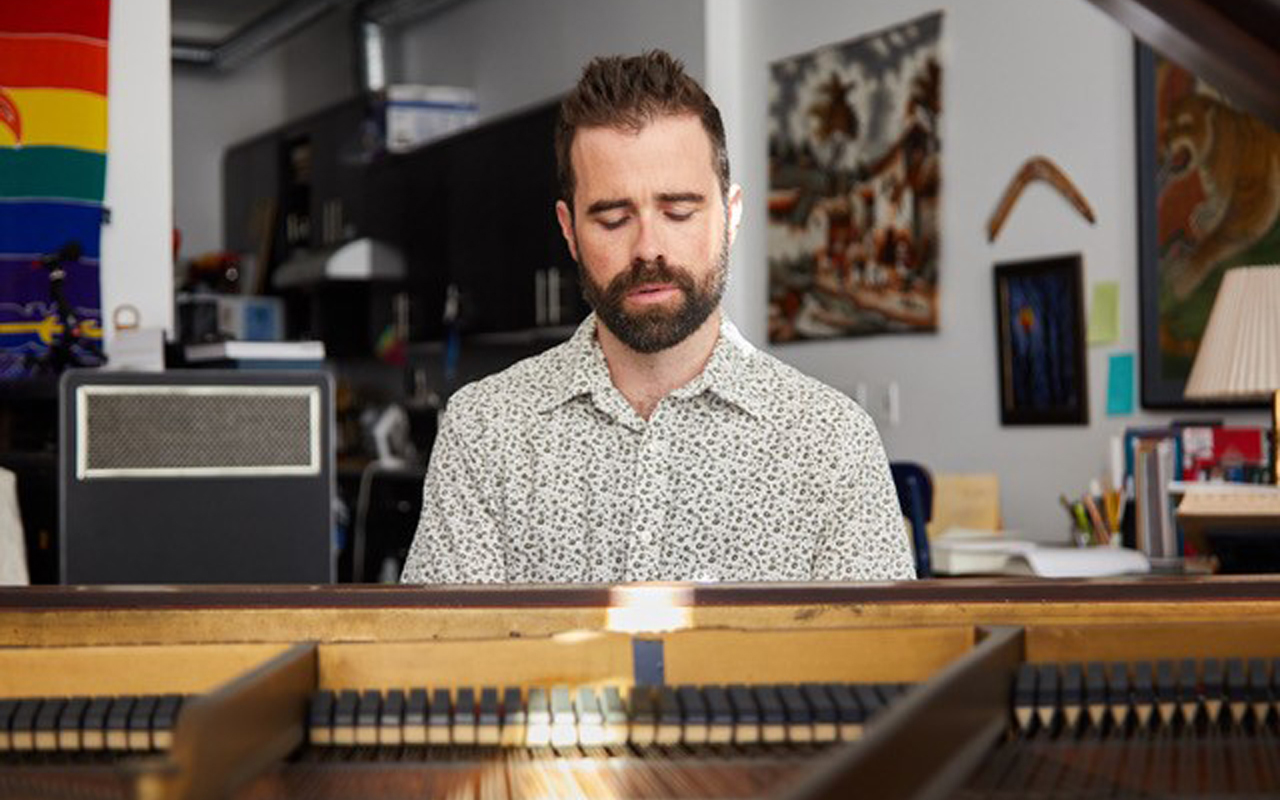
Alex Chadsey photo by Olli Tumelius.
Community Corner is a series that invites the public to contribute their thoughts, reflections, observations, and more about the world around us, particularly as it relates to jazz and music overall. Earshot Jazz is dedicated to amplifying the voices and stories of artists and community members alike. The thoughts and opinions expressed in this series are the author’s own and do not necessarily reflect those of Earshot Jazz. Please email submissions to editor@earshot.org.
This month Seattle-based musician, composer, and teacher Alex Chadsey, well-known for his work with his ensemble Duende Libre, explores his journey through the pandemic.
BY ALEX CHADSEY
Rituals saved my life. I’m not talking about animal sacrifices or fasting or self-flagellation. But when the pandemic upended my world, daily rituals provided structure, purpose, and a sense of empowerment. In the process, I learned a new respect for the power of daily rituals.
My earliest encounter with ritual was through music. As a child, practicing piano became my first ritual when I started taking lessons with an Everett teacher named Mary Belshaw. Like any kid I resisted practicing, but Mary had a gentle yet persistent approach. I also learned that doing the same activity at the same time every day conferred benefits like learning new songs, earning small rewards, and wowing friends.
Years later I discovered meditation. Learning to meditate was like practicing piano but the benefits were less tangible. I stuck with it anyway, maybe because I liked the routine or because I liked being around others who meditated. Eventually, I learned that no matter what was happening in my life, meditation was there like a steadfast friend.
There is a difference between habit that is compulsive and habit that is intentional. For me, that’s what distinguishes a ritual from compulsive habit. Compulsive habit is not a choice. Ritual, on the other hand, is only as powerful so long as the individual continues to choose it. It must be a conscious choice based on core aspirations and values.
Let me share an example. The pandemic has been hard on everyone but the blow it dealt musicians like myself was devastating. Overnight, I went from a busy music career to spending each day confined to my small apartment wondering what to do next. My schedule was empty and my future uncertain. My life had become a blank canvas.
“The blank space can be humbling,” observed the choreographer Twyla Tharp. It can also be terrifying. For me, it was all this and more. In the end, I turned to rituals as I had many times before. My rituals included waking up and going to bed earlier (no more late-night gigs!), taking daily walks around my neighborhood, and preparing steamed clams with angel hair pasta every Sunday evening. My rituals included practicing polyrhythms at the piano and daily ear-training exercises. I made lists to track how many hours I spent doing what each day. If there is power in giving something a name, there is power in recording an activity. As I harnessed the power of daily rituals, my pandemic life slowly came into focus, but the picture that emerged has been different in surprising ways.